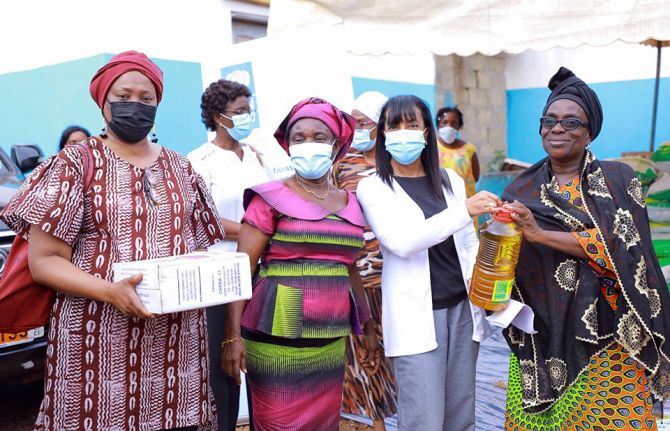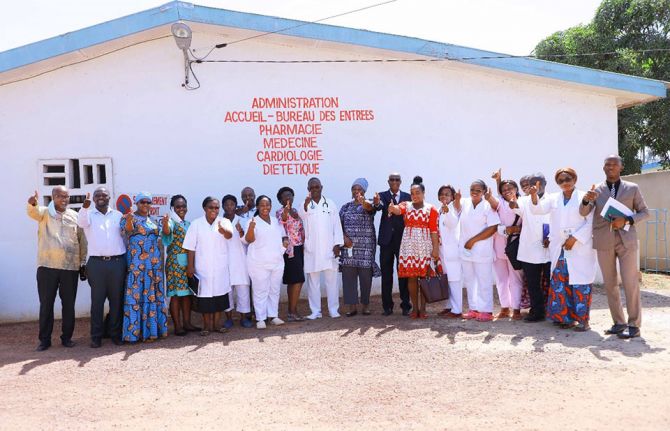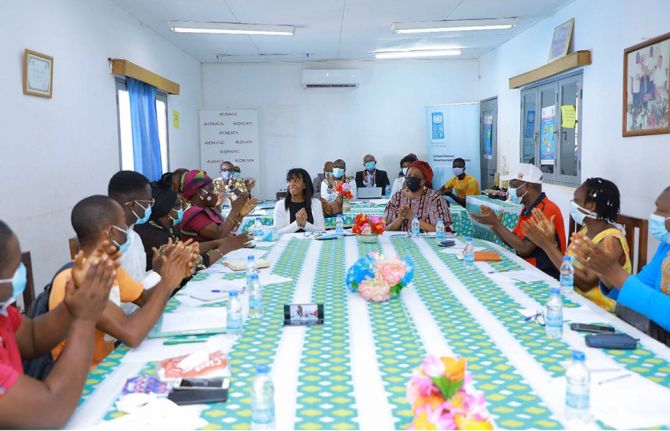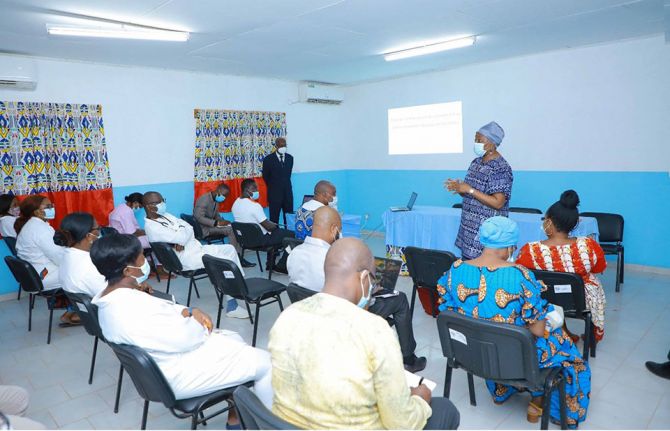




Feature Story
Joint mission supports the response to HIV in Gboklè/Nawa/San Pedro, Côte d'Ivoire
30 April 2021
30 April 2021 30 April 2021The Gboklè/Nawa/San Pedro region is the second largest economic hub in Côte d’Ivoire and one of the regions most affected by the HIV epidemic. The region attracts many workers because of its important economic and industrial activities, mainly related to the port and agriculture, as well as sex workers and other members of key populations.
A joint United Nations Development Programme (UNDP)/UNAIDS mission to the region from 16 to 20 April learned about the realities of the HIV response in the region in the context of COVID-19 and assessed how the response takes into account the needs of the most vulnerable.
The mission first paid a courtesy call on the region’s administrative and health authorities, and then quickly focused on the sites where services are offered to people living with HIV and key populations. In the health-care facilities visited, whether at the Regional Hospital of San Pedro, above, or at the health centre of APROSAM (Association pour la Promotion de la Santé de la Femme, de la Mère et de l’Enfant) nongovernmental organization, the mission team saw the commitment and determination of the health-care teams and the administrations of the facilities. “We have set up a quality assurance team within the hospital to guarantee services centred on the needs of each patient,” said Alexandre Kissiedou, the Director of the Regional Hospital of San Pedro.
The visit to APROSAM was one of the most captivating moments of the mission. During the visit, the mission team had in-depth discussions with representatives of a dozen associations, who had come to APROSAM’s headquarters to meet the mission delegation. Useful discussions took place with representatives of associations of people living with HIV and associations representing key populations, as well as with representatives of nongovernmental organizations working with young people.
“It is the first time that civil society is honoured with the visit of the country representatives of two United Nations agencies,” said Odette Koffi, the Executive Director of APROSAM, an association involved in the response to HIV, tuberculosis and malaria in the region. She also noted that civil society is truly committed to the HIV response but lacks the means to meet the needs of all.
“Income-generating activities are no longer working as they used to. Today we can’t even feed ourselves properly and we can’t take antiretroviral medicines on an empty stomach,” said Maya Rose Nean, the head of the local CERBAS association for women living with HIV, when describing how COVID-19 had impacted women living with HIV in the country.
Brigitte Quenum, the UNAIDS Country Director for Côte d’Ivoire, speaking on behalf of the delegation, underlined the vital work of nongovernmental organizations in the HIV response and praised the commitment of civil society organizations, people living with HIV and key populations. She said that a dialogue between UNDP and UNAIDS will address some of the pressing needs discussed with civil society. A donation of 400 food and hygiene kits was made by UNDP and UNAIDS to vulnerable people living with HIV and key populations.
The last day of the mission focused on human rights, with a visit to the Elan d’Amour reception centre, above, which offers temporary accommodation to people living with HIV and people who are victims of stigma, discrimination and gender-based violence, including people who come from remote areas for care and/or to collect their antiretroviral therapy. The delegation then visited a legal clinic supported by UNDP. These visits allowed the delegation to get a good understanding of the realities of human rights in the region, but also to understand their implications for specific HIV-related vulnerabilities. As a result of these two visits, the two agencies agreed to consider a joint project to better address HIV and human rights issues in the region.
For both teams, this mission was a success. The various needs identified will be the subject of concerted action either between UNDP and UNAIDS or by working with other Cosponsors that can provide relevant solutions.
Brigitte Quenum, the UNAIDS Country Director for Côte d’Ivoire, above left, met with the Prefect of the San Pedro department.



